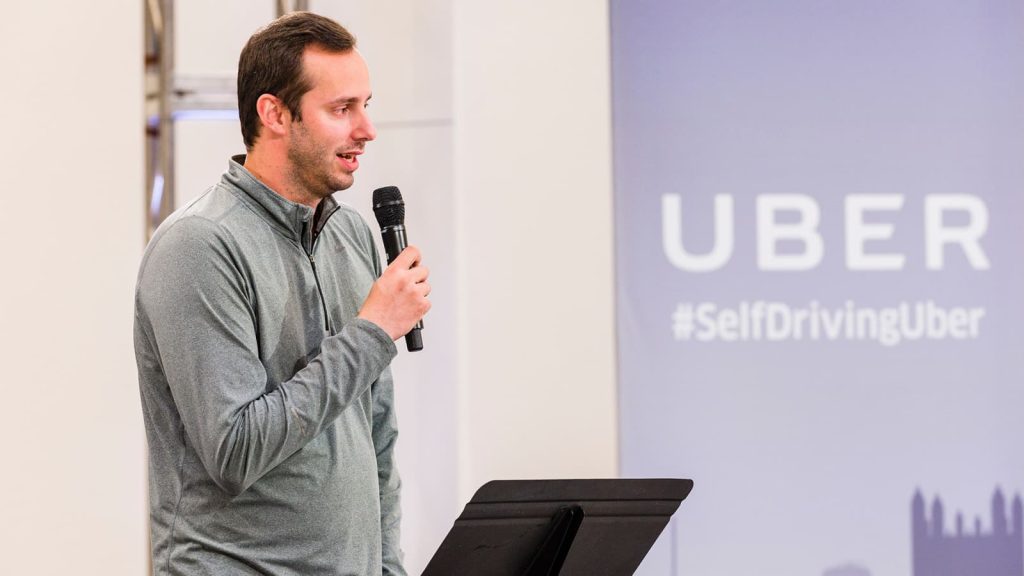Anthony Levandowski is a name that was once synonymous with the self-driving car industry. As a renowned engineer and entrepreneur, he played a significant role in the development of autonomous vehicle technology and made a fortune in the process. However, Levandowski’s meteoric rise to success was quickly followed by a spectacular fall from grace, as he became embroiled in a high-profile legal battle that effectively wiped out his net worth. In this article, we will take a closer look at how Anthony Levandowski made and lost his fortune.
I. Introduction
Anthony Levandowski’s career in the tech industry began with his graduation from the University of California, Berkeley, where he earned a degree in mechanical engineering. He went on to earn a master’s degree in the same field from Stanford University, where he became interested in robotics and artificial intelligence. Levandowski’s fascination with these technologies led him to some of the biggest names in the tech industry, including Google and Uber. He co-founded several startups, including Otto, which was later acquired by Uber for $680 million. However, his success was short-lived, as he became embroiled in a legal battle over alleged theft of trade secrets related to self-driving car technology.

II. How Anthony Levandowski made his fortune
Anthony Levandowski’s career in the tech industry began in the early 2000s, when he worked for a number of startups, including P2 Dynamics, 4Sevens, Blue River Technology, and others. His work in robotics and artificial intelligence caught the attention of Google, where he was eventually hired to work on the company’s self-driving car division, Waymo. It was at Google that Levandowski made some of his most significant contributions to the self-driving car industry.
One of Levandowski’s most notable achievements at Google was the development of the Lidar sensor, which is a key component of self-driving car technology. Lidar uses lasers to measure distances and create a detailed 3D map of the vehicle’s surroundings. Levandowski’s team was able to develop a much cheaper version of Lidar, which helped to make self-driving cars more accessible and affordable. Levandowski’s work at Google earned him a reputation as a leading expert in self-driving car technology.
After leaving Google, Levandowski co-founded several startups focused on autonomous vehicle technology, including Otto, a self-driving truck company. Otto quickly gained attention in the tech industry, and in 2016, just months after its founding, it was acquired by Uber for $680 million. Levandowski’s role in the development of self-driving car technology and his success at Otto led to an estimated net worth of $100 million.
III. How Anthony Levandowski lost his fortune
Unfortunately for Levandowski, his success at Otto was short-lived. In 2017, Waymo filed a lawsuit against Uber, alleging that Levandowski had stolen trade secrets related to self-driving car technology while he was still working at Google. Waymo claimed that Levandowski had downloaded thousands of confidential files and used them to develop self-driving technology at Otto and later at Uber. The lawsuit dragged on for over a year, during which time Levandowski was fired from Uber and forced to declare bankruptcy.
In February 2018, just days before the lawsuit was set to go to trial, Uber settled with Waymo for $245 million. As part of the settlement, Uber agreed to give Waymo an equity stake worth around $245 million and to not use Waymo’s trade secrets in its self-driving cars. However, the settlement did not cover Levandowski’s legal fees, which amounted to over $30 million. Levandowski was forced to declare bankruptcy in March 2018, and his assets were seized to pay off his debts.
In addition to his legal troubles, Levandowski’s reputation in the tech industry was severely damaged by the lawsuit. He was accused of stealing trade secrets from his former employer, Google, and using them to benefit his own companies. Levandowski was also accused of lying under oath and obstructing justice during the lawsuit. As a result, Levandowski was banned from working on self-driving car technology for a period of 18 months.
IV. Lessons learned from Anthony Levandowski’s story
The story of Anthony Levandowski is a cautionary tale for entrepreneurs and tech industry professionals. Levandowski’s success was built on his ability to innovate and develop cutting-edge technology, but his downfall was caused by his alleged theft of trade secrets. Levandowski’s story highlights the importance of intellectual property and the consequences of violating it. Entrepreneurs and professionals in the tech industry must be mindful of the laws and regulations surrounding intellectual property, as violating them can result in severe consequences.
Levandowski’s story also highlights the importance of ethical conduct in the tech industry. Levandowski was accused of stealing trade secrets, lying under oath, and obstructing justice. These allegations damaged his reputation and led to his downfall. Entrepreneurs and professionals in the tech industry must maintain ethical standards in their work and avoid engaging in behavior that could harm their reputation or their company’s reputation.
V. Conclusion
Anthony Levandowski’s story is a cautionary tale of how quickly success can turn into failure. Levandowski’s innovations in self-driving car technology led to his success and a net worth of $100 million. However, his downfall was equally swift, as he became embroiled in a legal battle that wiped out his net worth and damaged his reputation. Levandowski’s story highlights the importance of ethical conduct and respect for intellectual property in the tech industry. It is a reminder that success must be built on a foundation of integrity and ethical behavior.












